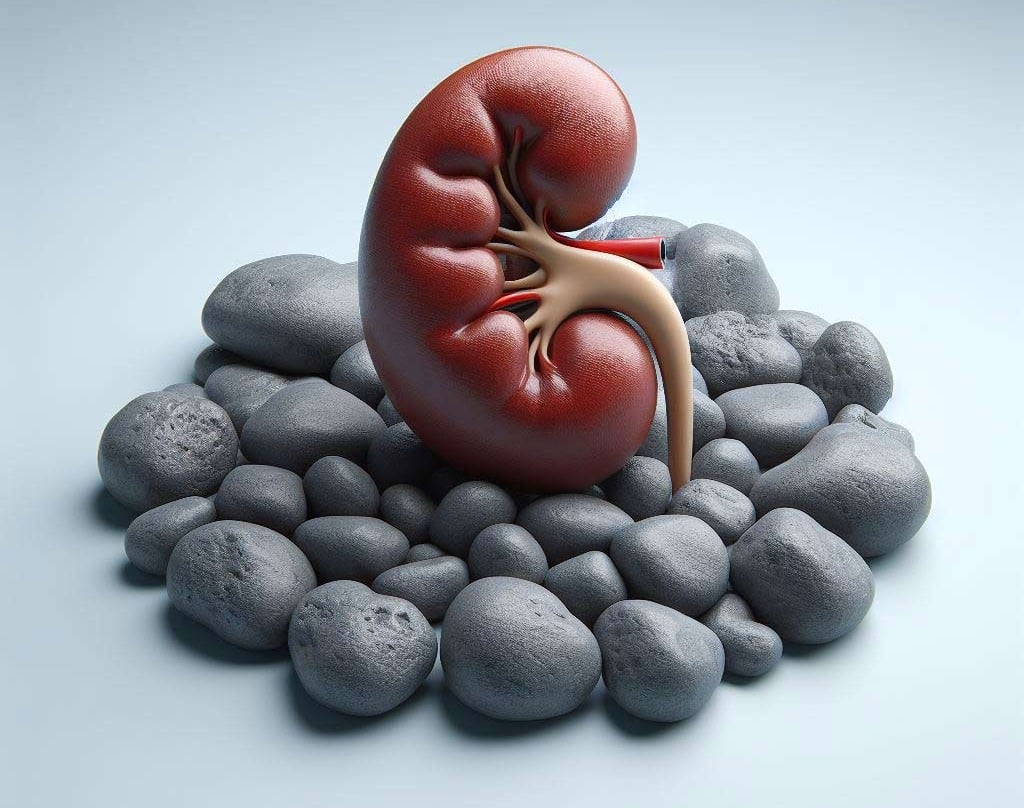7 Early Warning Signs of Kidney Stones You Shouldn't Ignore
Kidney stones cause intense pain, but your body often gives subtle warnings. Consultant Urological Surgeon Ivo Dukic highlights 7 key signs: flank/back pain, radiating pain to the groin, urinary changes (urgency, frequency, burning), blood in urine, cloudy/foul-smelling urine, nausea/vomiting, and restlessness. Early detection prevents severe pain and complications. Prompt treatment is crucial for managing kidney stones and protecting kidney health. Learn more about kidney stone symptoms, diagnosis, and treatment.
URINARY STONE DISEASEBLOOD IN THE URINEURINARY SYMPTOMS
Ivo Dukic
2/15/20254 min read


By Ivo Dukic, Consultant Urological Surgeon specialising in kidney stone disease
Kidney stones. The very words can evoke shivers and images of excruciating pain. Many patients I see in my practice describe kidney stone pain as the worst they have ever experienced. While the acute pain of a kidney stone attack is certainly unforgettable, it’s important to recognise that your body often sends out earlier, subtler signals before you’re doubled over in agony.
As a consultant urological surgeon, I strongly believe in the power of early detection and proactive health management. Understanding the early warning signs of kidney stones can be crucial in preventing severe pain, complications, and potentially more invasive treatments down the line. Ignoring these early signals could be a decision you later regret.
So, what are these early whispers your body might be sending you? Let's break down 7 key warning signs of kidney stones that you absolutely should not ignore.
So what are kidney stones? Kidney stones are hard deposits made of salts and minerals that form inside your kidneys. They can range in size from a grain of sand to a golf ball (though thankfully, most are much smaller!). Problems arise when these stones move out of the kidney and into the urinary tract, potentially causing blockages of the tubing system (ureters) and significant discomfort.
Here are 7 early warning signs to be mindful of:
1. Mild, Persistent Flank or Back Pain:
This is often the very first sign, and easily dismissed as muscle strain or backache. Kidney stone pain typically starts in the flank area – the side of your back, just below the ribs. Initially, it may be a dull ache, a constant pressure, or a vague discomfort rather than the sharp, stabbing pain of a full-blown attack. Pay attention to persistent, unexplained pain in this region, even if it’s mild. It might be your kidneys trying to tell you something.
2. Pain that Radiates to the Groin or Lower Abdomen:
As a kidney stone begins to move from the kidney towards the bladder, the pain often shifts and radiates downwards. You might start to feel discomfort in your lower abdomen, side, groin area, or even inner thigh. This radiating pattern is characteristic of kidney stone pain as it follows the path of the ureter (the tube connecting the kidney to the bladder).
3. Changes in Your Urinary Habits:
Keep an eye on any alterations in your normal urination pattern. Early signs can include:
Increased Urgency: Suddenly feeling a strong, immediate need to urinate, even if your bladder isn’t full.
Increased Frequency: Needing to urinate more often than usual, both during the day and at night.
Pain or Burning Sensation During Urination (Dysuria): While this is also a common symptom of urinary tract infections (UTIs), it can also occur with kidney stones, especially if they are causing irritation or infection.
4. Blood in Your Urine (Hematuria):
This is a more concerning sign, and should never be ignored. Blood in the urine, even a small amount that turns your urine pink, red, or brownish, can be a sign of kidney stones irritating the lining of the urinary tract. Sometimes the blood is microscopic and not visible to the naked eye, but visible blood is a clear signal to seek medical attention.
5. Cloudy or Foul-Smelling Urine:
While not directly caused by the stone itself, cloudy or foul-smelling urine can suggest a secondary urinary tract infection, which is a common complication of kidney stones. The stone can obstruct urine flow, making it easier for bacteria to grow. If you notice these changes in your urine, especially alongside other symptoms, it’s worth investigating.
6. Nausea and Vomiting:
These gastrointestinal symptoms might seem unrelated to your kidneys, but they are actually a common reflexive response to the pain caused by kidney stones. The intense pain can trigger the vomiting center in the brain. If you experience unexplained nausea and vomiting alongside back or abdominal pain, kidney stones could be a culprit.
7. Restlessness and Inability to Get Comfortable:
Patients with kidney stones often describe a peculiar restlessness. They can't find a comfortable position, constantly shifting and moving, pacing, or lying down only to get up again. This is because the pain is often colicky – meaning it comes in waves – and finding relief can be elusive. If you find yourself unusually restless and unable to settle down due to pain, consider the possibility of kidney stones.
Why Early Detection Matters:
Recognising these early warning signs is crucial because early diagnosis and treatment can:
Prevent Severe Pain: Addressing kidney stones early may prevent them from growing larger or becoming completely obstructed, thus avoiding the intense pain of renal colic.
Enable Less Invasive Treatments: Smaller stones are often easier to treat with less invasive methods like increased fluid intake, medication to help pass the stone, or minimally invasive procedures if needed.
Reduce the Risk of Complications: Untreated kidney stones can lead to complications like urinary tract infections, kidney damage, and even kidney failure in rare cases.
What to Do If You Suspect Kidney Stones:
If you experience any of these early warning signs, especially if you have a combination of symptoms, please don't ignore them and don't delay seeking medical advice. It’s always best to get checked out by a healthcare professional.
Your general practitioner can initially assess your symptoms and may refer you to a urologist for further evaluation and management if kidney stones are suspected. Diagnostic tests like urine tests, blood tests, and imaging scans (such as a CT scan of the kidneys ureter and bladder) can confirm the diagnosis and determine the size and location of any stones. CT scans have a very high accuracy for detecting kidney stones with pick up rates of more than 99% for most kidney stones.
Take Charge of Your Kidney Health:
Kidney stones are a common problem, but you don't have to suffer in silence. By being aware of these 7 early warning signs and being proactive about your health, you can take steps to catch kidney stones early, potentially avoid severe pain and complications, and get back to feeling your best.
Mr Ivo Dukic is an experienced consultant urologist who offers personalised consultations in Birmingham, United Kingdom. Schedule an appointment with him for expert, bespoke advice through his Top Doctors profile or book an appointment through Harborne Hospital, HCA Healthcare, the Priory Hospital, Edgbaston, Circle Health Group or Droitwich Spa, Circle Health.
Ivo Dukic
Contacts
e-mail: admin@ivodukic.co.uk
Telephone number for private patients:
0121 716 9046
(Mondays to Fridays 0800 - 18:00)
For NHS patients seen at University Hospitals Birmingham NHS Hospitals please get in contact on
0121 424 9011
(Mondays to Fridays 0900 - 17:00)
ivodukic.co.uk
© 2026 UrolSurg LTD


